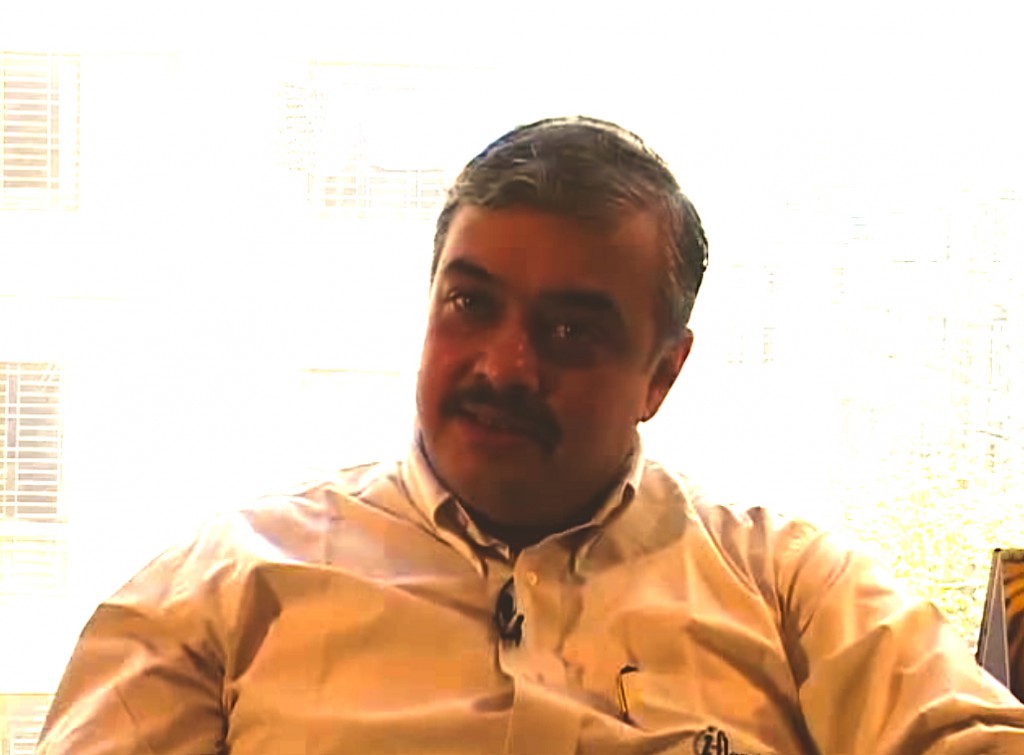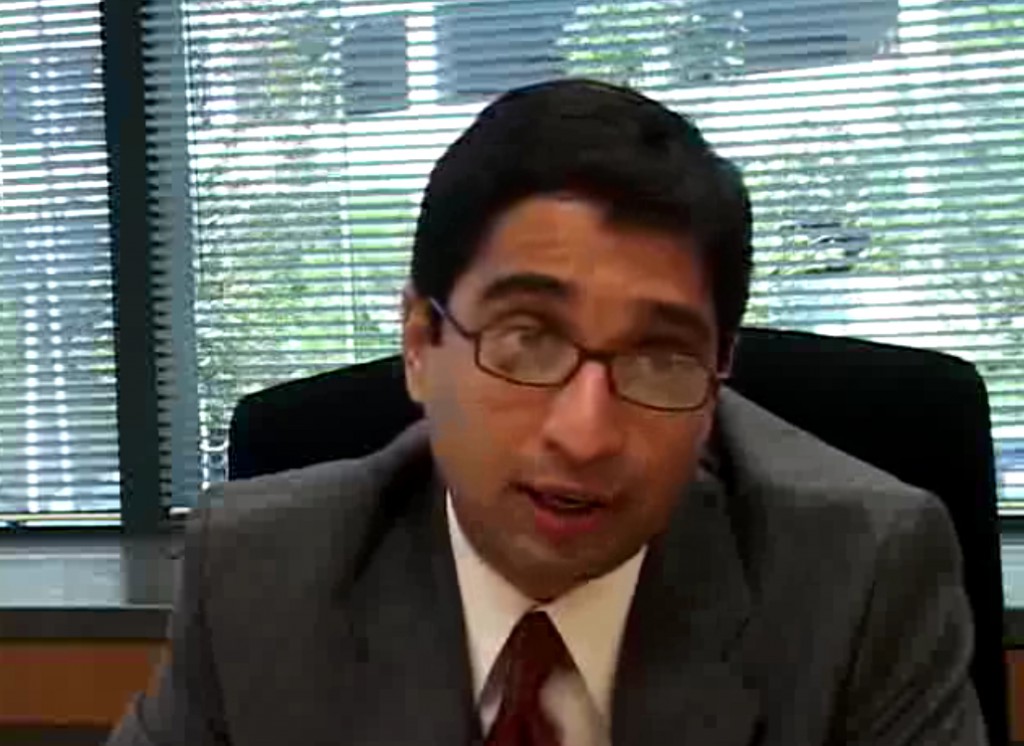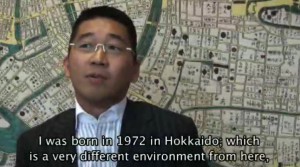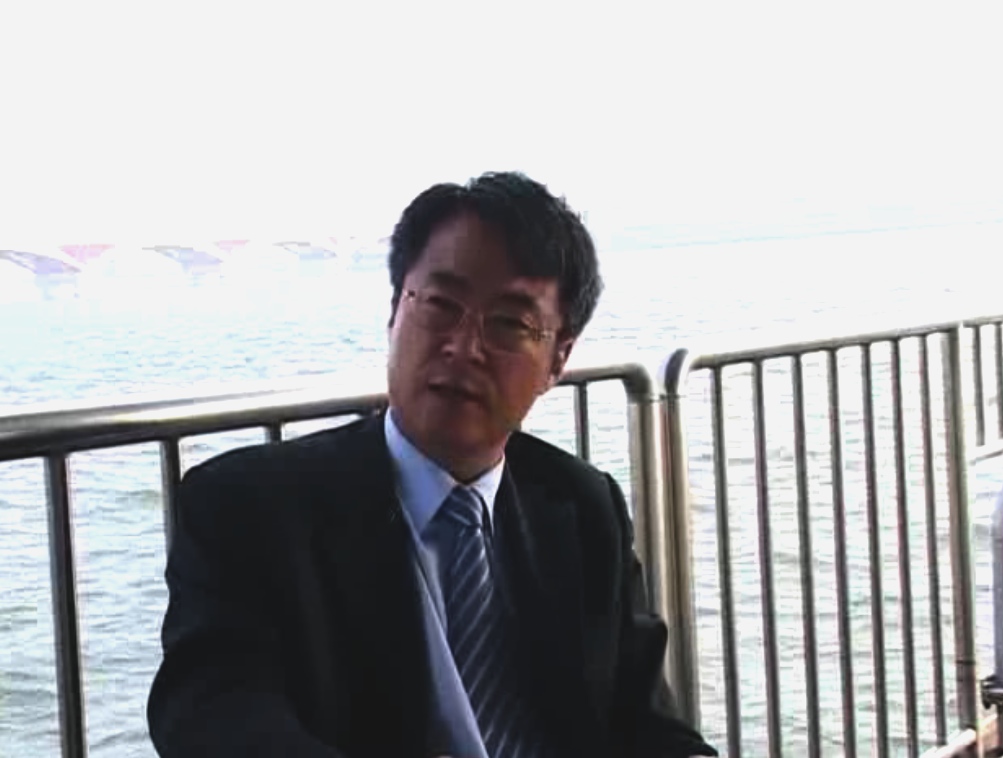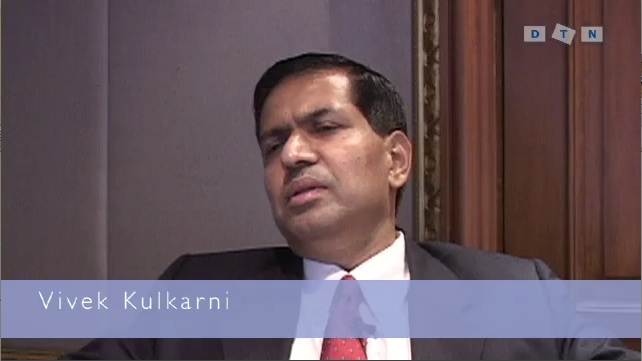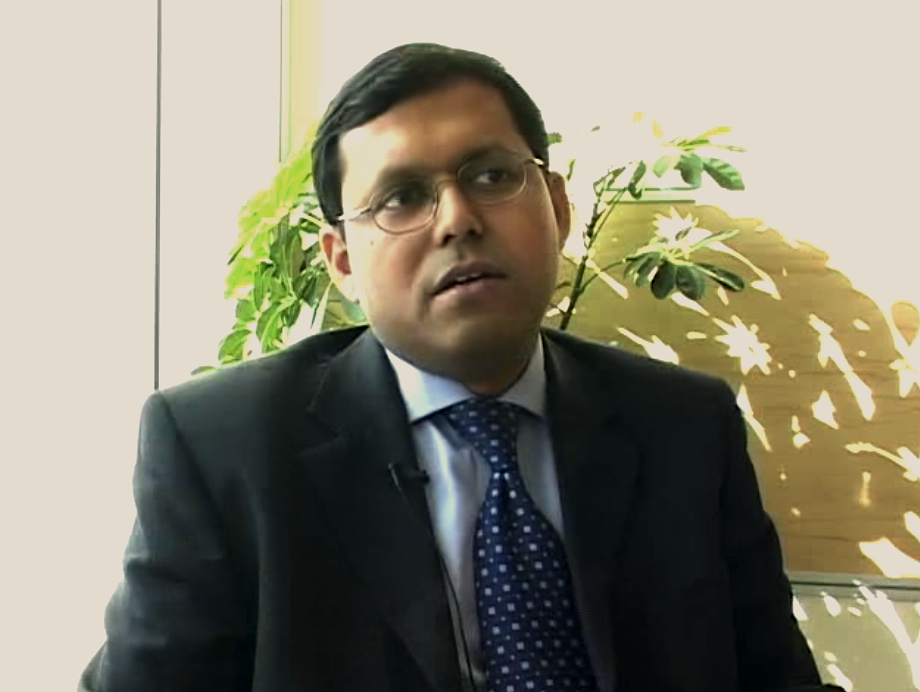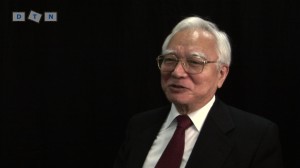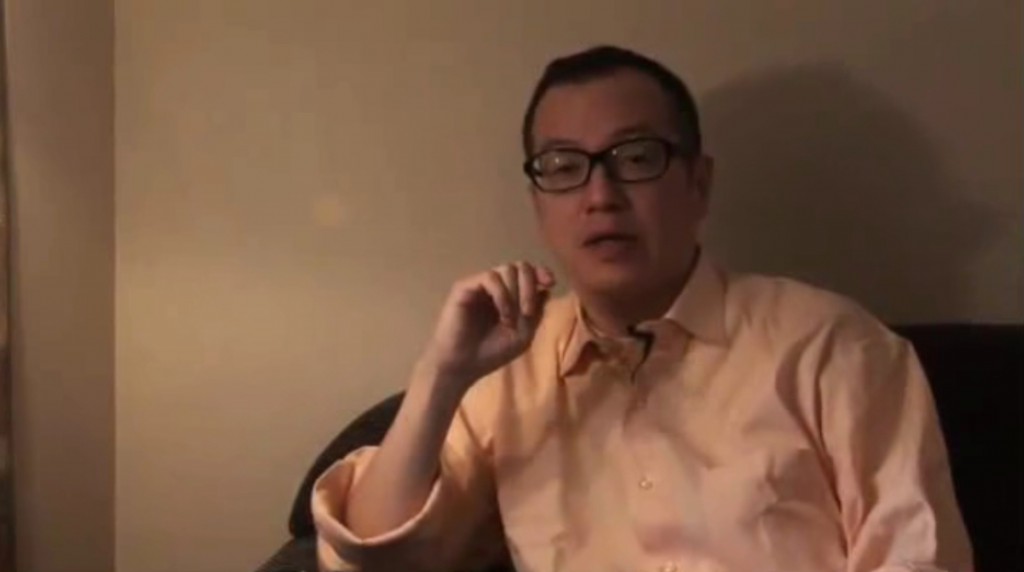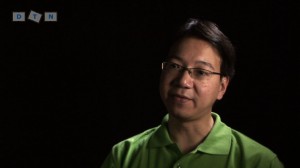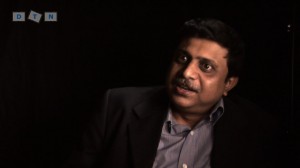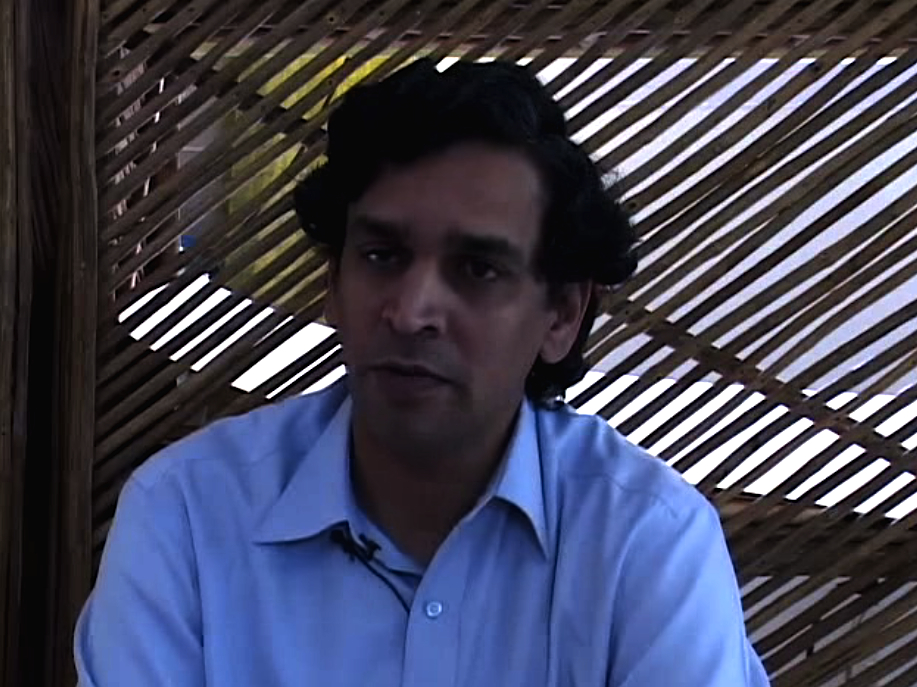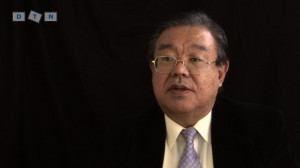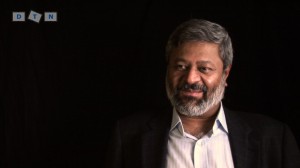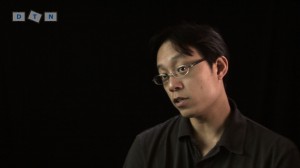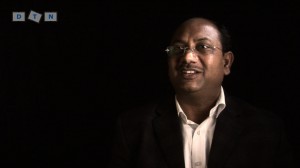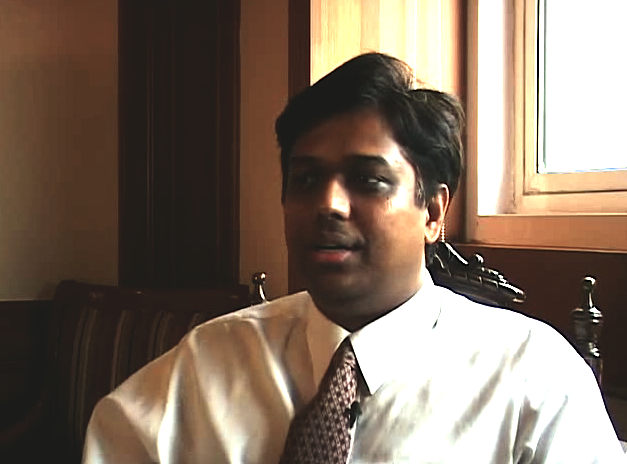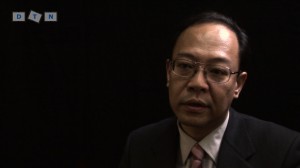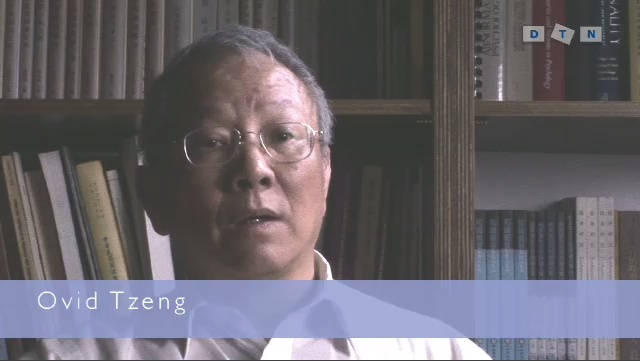Alphabetical order
Izumi Aizu, – Izumi is associated with Asia Network Research, and The Asia & Pacific Internet Association (APIA).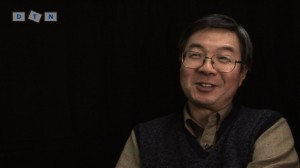
“There is a good possibility to have some part of network fragmented. I don’t think the entire Internet will be fragmented, because it will not happen overnight. And if at least wise people see the danger of fragmentation happening in reality, there must be people collectively work together to fix the problem, to patch back or some sort of design change. So, I still am a little bit optimistic that people are not that foolish to let it fragment automatically.”
______________________________________________________________________________________________________________________________________________________
Vic d’Alfonso, – Vice President, Patni Financial Services, India
Shift paradigms in career development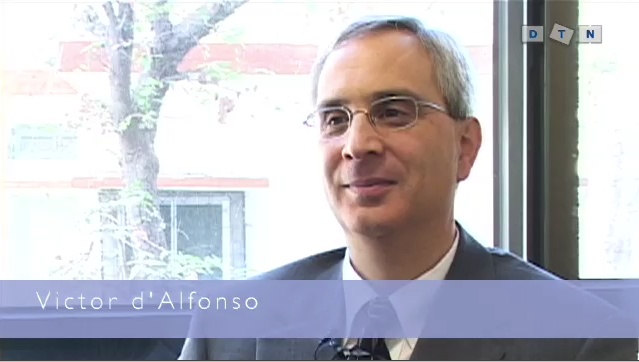
“The paradigm in career development changed”, explains Vic d’Alfonso. Before the Internet boom, it was a bad thing for your resume if you changed companies too often. This changed during the Internet boom: a lot of different experiences became positive indicators in a resume. This shifting paradigm will have a broader impact when those, who made their careers on top of this wave, are in charge.
______________________________________________________________________________________________________________________________________________________
David Chang – CEO Philips China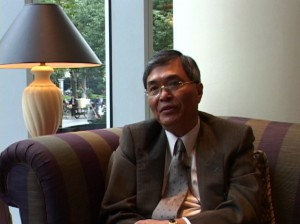
Rotterdam and Shanghai can be a great team together. China is developing from a producer to a consumer economy. This means growth of Chinese brands that will be looking to expand globally. There are opportunities for Holland and Rotterdam here.
______________________________________________________________________________________________________________________________________________________
Deepak Ghaisas, – CEO iFlex Organising
Behaviour is an important field of knowledge in the world of banking, according to Deepak Ghaisas. We need this knowledge if we want to innovate successfully, because people are both the source and the aim for innovation.
In the field of outsourcing partnership rather than ownership has shown to be a successful strategy.
________________________________________________________________________________________________________________________________________
Natarajan Chandrasekaran, – Executive Vice President, TCS, India
Increase the use of global talent
“There is a lot of talent leakage.” In the opinion of Chandrasekaran, organizations function in such a way that talent is not fully used. Part of the solution is to leverage talent across the globe by means of sophisticated communication tools. With an increasing ‘talent gap”, this will happen in the near future.
______________________________________________________________________________________________________________________________________________________
Jeremy Godfrey,- Hong Kong SAR Government Chief Information Officer
Jeremy is the Government Chief Information Officer of the Government of Hong Kong Special Administrative Region (HKSAR).
“Any doctor you see in the hospital authority can find your medical history, can look at the films if they’ve come from radiographic images and so forth. It’s led to a very high degree of productivity in the hospital authority, reductions in medical accidents, reductions in unnecessary duplicated medical tests.”
“We’re building an electronic record-sharing infrastructure to enable doctors’ labs, public and private sector to exchange data as necessary to enable and to deliver care. But, privacy concerns are absolutely foremost in that scheme. So, one of the first decisions we made was to decide the data belongs to the patient. So the patient must be in control of authorising which doctors should be allowed to see the data.”
________________________________________________________________________________________________________________________________________
Ashwin Goyal, – Vice President Products Siebel Financial Services
Consumer mindedness is the central point of this interview. What a discerning costumer wants from a bank and how a bank can meet these demands. In this process, cost and complexity are getting out of hand. Reducing both is a top priority for ICT.
______________________________________________________________________________________________________________________________________________________
Shinnosuke Honjo, – Ex-Vice President and Founder Rakuten – Tokyo
Reform of Japanese education system
Technology and children
Apprenticeship and education
Future of Japanese education
“I guess the main factor which is making the e-learning material less attractive is its incapability to provide a sense of togetherness with other individuals. Because the e-learning isn’t designed for entertainment, you need peers. I have studied from correspondent study materials, but the only course I succeeded in learning is from a text based mailing list, consisting of 20 peers with one teacher, with the subject on the editing method. The typical e-learning means a website with visual and audio effects, but what is more important is the presence of peers who share the joy of learning. The developer of e-learning programs cannot escape from their duties of making better or more entertaining audio visual effects, but that’s not actually what is needed for the learners.”
______________________________________________________________________________________________________________________________________________________
Dr. Kanodia, – Chairman and Founder Datamatics Group
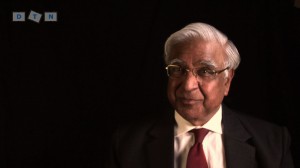
Lalit is considered as the founder of the Indian IT and BPO industry. Datamatics is a global provider of intelligent, value-driven technology and business solutions.
“I think my perception of India right now is that it’s a very hungry nation. I don’t know how you can measure hunger, whether it’s the businessman or whether it’s the common man. I think there’s a great desire to move forward. And I think India sees IT and communications and the Internet as a way to satisfy its hunger.”
______________________________________________________________________________________________________________________________________________________
Jongwan Kim, – General Manager Researcher with WOORI BANK in Korea
In Korea mobile banking is a widespread service that is offered by all the major banks, including WOORI BANK, the second largest bank in Korea. In this interview, Jongwan Kim shares his ideas about the future of ICT in banking in general and the practice and (future) possibilities of mobile banking in particular. At the end of the interview he gives a demonstration of mobile banking with his own mobile telephone.
______________________________________________________________________________________________________________________________________________________
Yogesh Kulkarni, – Executive Director, Vigyan Ashram, India
“Work is a medium of education. We call it a natural system of learning.” Yogesh Kulkarni argues that many of the vital skills we use in everyday life, such as our native language which we learned from doing, not from schooling. This learning method has proven its effectiveness through generations of use. At the Vigyan Ashram, a learning community in rural India, Kulkarni is trying to find ways to bring this natural system of learning into the regular school system. At his Ashram, students acquire skills and theoretical knowledge, such as math and sciences, through work. In this, work is the medium for learning, not the aim of education.
______________________________________________________________________________________________________________________________________________________
Vivek Kulkarni, – Former IT Secretary of Bangalore, India
“Just 25% of Bangalore produces as many engineers as the entire country of Ireland.” There is enough talent in India, says Vivek Kulkarni. But there is enormous growth; so, companies have to work hard to attract the best talent. Talented people need challenge in their jobs. This is an important factor that is often not met by outsourcing companies in India. Thus, when hiring talent, it should be for high level work and not for simple tasks.
______________________________________________________________________________________________________________________________________________________
Praveen Kumar,- Associate Vice President, Head Financial Services, Infocys UK
Praveen Kumar argues for development from the big picture. Decisions in a specific sector like ICT, on outsourcing for example, should be made from the point of view of the whole business. Only than will development be successful. The best way to do this without drowning in complexity is to modulate on the practical level.
______________________________________________________________________________________________________________________________________________________
Shumpei Kumon, – Professor and director Institute of Infosocionomics, Tama University
Shumpei is a social economist who heads the Tokyo-based Center for Global Communications. He predicted that in addition to spawning a “third industrial revolution”, the developing information infrastructure will also spawn a social revolution, creating a new class of network-aware citizens, or “netizens.”
“A new class of the social game is now coming into existence, replacing or complementing to a certain extent the old social game called worth game, or capitalist game of profit seeking.”
______________________________________________________________________________________________________________________________________________________
Christine Loh, – Founder and CEO of Civic Exchange – Hong Kong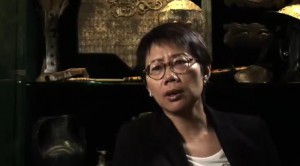
Sustainability
Leaders should make informed decisions.
Paying for what we do not use.
Pay for efficiency, pay for less waste.
Pay for outcome, not consumerism.
“We don’t need business travel because technology allows us to have virtual meetings”
______________________________________________________________________________________________________________________________________________________
Masu Masuyama, – Manga Writer/ Content Producer – Tokyo
Using narrative elements to engage people.
Brain Training, defining a new genre of educational elements in games.
Connection between interface and user activity
The role of school and video arcade should be exchanged
“The situation in schools, they are basically saying they only have textbooks and a traditional way of teaching. Well of course, they have class PC, but it’s only how to use Windows, how to use Word. I did that research of how we can use the video games to education, the research nine years ago.”
______________________________________________________________________________________________________________________________________________________
Isaac Mao, – Co-founder Social Brain Foundation
Innovative Internet Thinker and Do’er.
______________________________________________________________________________________________________________________________________________________
Tetsuya Mizuguchi, – Chief Creative Officer, Q Entertainment, Tokyo Japan
“In making the game, Ninety-Nine Nights, I was inspired by the different viewpoints in the reporting of 9/11.” Tetsuya Mizuguchi talks about an educational element in a mainstream computer game. Inspired by the different media perspectives of different countries on the 9/11 attacks, Mizuguchi made a game that shifts perspectives, showing that how we see things depends on our perspective and the way that the situation is described to us.
______________________________________________________________________________________________________________________________________________________
Charles Mok, – Chairman Internet Society Hong Kong
Charles is a Hong Kong based Internet entrepreneur and IT advocate. He is Chairman at the Hong Kong Internet Society.
“The Chinese government is very keen on developing an Internet environment inside of China that is, in a way, its own Internet, with its own rules and with its own service providers.”
“I think there is a huge gap between businesses, governments, communities in general, the way that they understand where the Internet or the media is going, as opposed to the people who are leading the usage of these applications. I think, in a way, I could put it as the conflict or the gap between the so-called digital natives and the digital immigrants.”
______________________________________________________________________________________________________________________________________________________
Sourav Mukherjee, – President and CEO Netscribes
Netscribes is a consulting and solutions firm that offers investment and business research, knowledge management and communication services to meet the tactical business objectives of global clients.
“India is just doing services for others. Today if you have the entire back end of Thomson Reuters in India, what stops India from creating a global database of its own, and branding it. … India has not been able to create brands yet.”
______________________________________________________________________________________________________________________________________________________
Krish Murali, – Trestle India
In an interesting visual manner Krish Murali Eswar outlines his view on the future of ICT in banking. In a highly structured way, he argues for a systematic approach and sketches advantages and disadvantages of different aspects of banking.
______________________________________________________________________________________________________________________________________________________
Teruyasu Murakami, – Chief Counsellor Nomura Research Institute
Teruyasu is also author of “The Ubiquitous Network and Challenges to the Information System”.
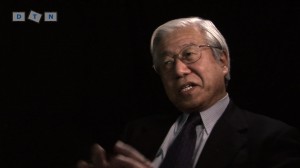
“The basic difference between web computing and the ubiquitous networking is, I think web computing is enriching the virtual space, the virtual world by internet, but the ubiquitous networking is taking a different direction not going into the virtual world, but to the real world.”
______________________________________________________________________________________________________________________________________________________
Jun Murai, – COO of DMC Institute, Vice President Keio University
Jun is currently Professor at the Faculty of Environmental Information at Keio University, Japan. He is a computer scientist, and known as “the father of Japan’s Internet”.
“The fragmentation of the networks could be happening and … we are already seeing them, but then it’s really important that we keep at least a single global space as a kind of a very, very basic digital communication means, which I believe to be the Internet.”
______________________________________________________________________________________________________________________________________________________
Masato Murakami & Yoriaki Kanada, – Deputy President Sony Disk & Digital Solutions & General Manager Technology Planning Department Sony – Tokyo
Edutainment doesn’t work after the age of seven. 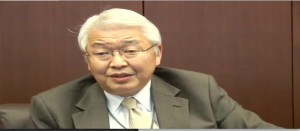
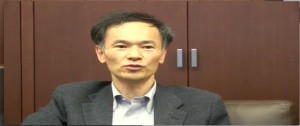
The process should make learning enjoyable.
A change in definition of education.
______________________________________________________________________________________________________________________________________________________
N Chin Nam, – Permanent Secretary Arts Culture Singapore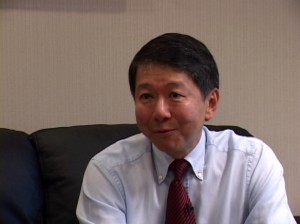
In Singapore we base our economic development on the fact that human capital is the critical resource for a city that wants to be a global city. This means that we actively attract talent with our international talent policy and education policy. Key driver of these policies is the question what business needs to grow. One might think that this might produce resistance on the part of the local population, but in the end it is about growing the economic pie for all.
______________________________________________________________________________________________________________________________________________________
Alok Pathak, – CEO Idhasoft
Idhasoft a Mumbai based international organization, which provides a range of IT services; from software application development and strategic IT consulting to recruitment process outsourcing, and implements third party enterprise-wide products.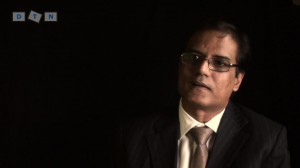
“IT is going to be as service oriented as hospitality industry, where the quality of service, in time, on budget service is going to be the mantra of IT.”
“IT has to understand the mindset of the business and create a very interactive solution.”
______________________________________________________________________________________________________________________________________________________
Sudhakar Ram, – Chairman and Managing director Mastek
Sudhakar is a high-end provider of vertically-focused enterprise technology solutions and platforms.
“I think somehow the age of large business has to end over the next ten years and that is where your utility model comes, so there will be large utilities which provide single function and they do it extremely well, but there will be a lot more local flavours which are handling micro markets, who work very specialized, who have a great insight into costumers.”
______________________________________________________________________________________________________________________________________________________
Eiji Sato, – Sushi Oykata (Master of masters) – Tokyo
“If you have done something wrong, the master tells you that the result is not good. He doesn’t explain the reason.” Eiji Sato relates his own experience as master and as apprentice to illustrate how learning works in this system. Explanation is not provided, and apprentices must uncover for themselves why something is wrong. Also, there is no rehearsal, no practice or simulation. There is only the real activity in the working environment where every action has real results.
______________________________________________________________________________________________________________________________________________________
Yat Siu,- Founder and CEO Outblaze
Outblaze is a messaging communications company that services over 40 million users.
“I think the culture plays a very, very big role as to why [global] entrepreneurial dynamic changes. And I think it has to do with age. And that’s why I think China is more advanced, because you have a very, very young generation of entrepreneurs who have nothing to lose, but who also feel invincible, whereas, let’s say in the more wealthier places, you would say like Japan, for instance, people feel like they have something to lose by the time they start a business, or they’re risk adverse because they don’t want to lose it.”
______________________________________________________________________________________________________________________________________________________
Munwar Shariff, – CTO & VP of CIGNEX
CIGNEX aims at bringing Open Source advantages to production environments.
“In the next 10 years, I believe maybe it is not surprising that about 80 to 90% of the application software which will be in the market, will be the open source based platform.”
______________________________________________________________________________________________________________________________________________________
Rajeev Srivastava, – CEO and Co-founder APAR
The development of India is a major subject of this interview. According to Rajeev Srivastava the advantage of outsourcing to India is still partly in the costs and will be for a while. But more advantage lays in taking part in the development of India. A way to do this is taking equity shares in relatively small but promising companies.
___________________________________________________________________________________________________________________________________________
Yasu Taniwaki, – Division Director ITC Strategy Global ICT Strategy Bureau, MIC
Yasu is Division Director ICT Strategy at the Telecommunications Policy Division, Telecommunications Bureau Ministry of Internal Affairs & Communications (MIC) in Japan.
“E-government is good for ensuring the transparency of the government or improving the efficiency of the government. And when we talk about the e-government, again, we have to change from the supply side to the demand or user side, more user-centric models should be developed in the context of developing e-governments. So, that kind of chance of mode has been taking place within the Japanese government.”
______________________________________________________________________________________________________________________________________________________
Ovid Tzeng,- Former Minister of Education of Taiwan and Neuropsychologist – Taipei, Taiwan
“Learning is really about examination in Taiwan. Over the last few years, Taiwan has been moving away from this kind of teaching attitude.” As Minister of Education, Ovid Tzeng has been at the heart of educational reform in Taiwan. In the cultural climate of Asia, it is hard to get people to let go of the emphasis on examinations and, instead, focus on learning. But with the combined effort of those who believed in reform, the situation has changed significantly over the last years.
______________________________________________________________________________________________________________________________________________________


